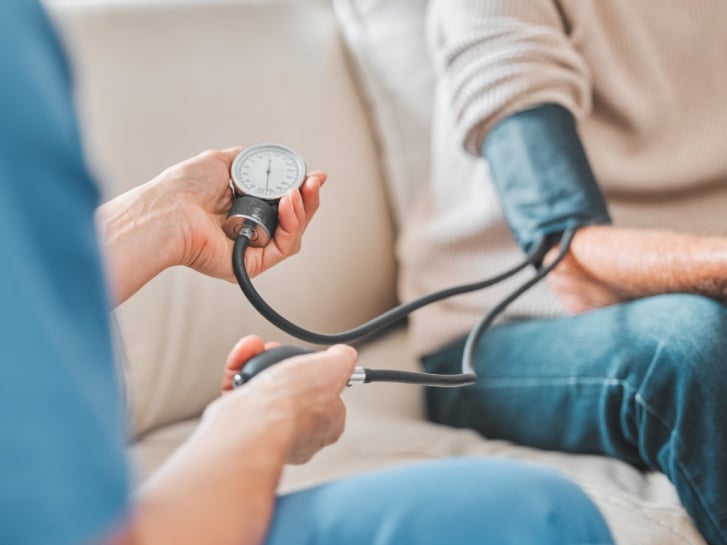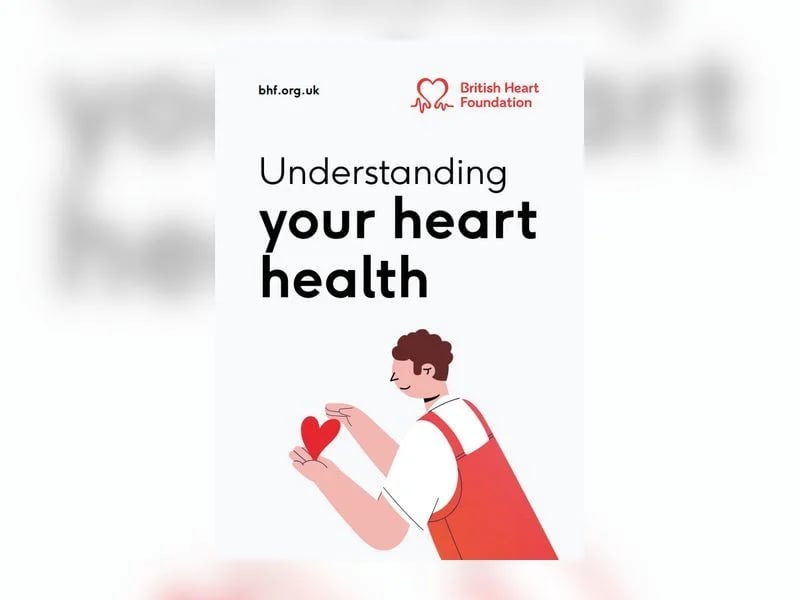
Can I get financial support or benefits if I have a heart condition?
Finances can be an extra worry if you live with a heart or circulatory condition, or if you’re recovering from a treatment like heart surgery. The cost of living crisis has also added a lot of financial pressure to many households. We explain what financial help may be available to you, and how to access it.
Universal Credit
Universal Credit is the main regular benefit payment being offered by the UK government. It can help with your living costs if you’re on a low income or out of work. If you have a health condition, disability or terminal illness you might get an extra amount of Universal Credit.
- You can check if you are eligible for Universal Credit on the Citizen's Advice website.
If you decide to apply for Universal Credit, you will be need to complete a Work Capability Assessment, which assesses whether your health condition prevents you from working.
If you've paid National Insurance contributions while working you may get contributory ESA (Employment and Support Allowance). You may be able to claim this instead of or alongside Universal Credit or income-related ESA.
Can I get free prescriptions?
Medical prescriptions are free in Northern Ireland, Scotland and Wales. They are also free for people in England who meet certain criteria, including people who are:
- under 16 or over 60
- receiving Income Support, JSA, ESA or Universal Credit
- pregnant
- 16 to 18 and in full-time education
- have certain health conditions, including a continuing disability or diabetes that cannot be controlled with diet
- have a physical disability that stops you going out unless you have help from another person, and have a valid medical exemption certificate (MedEx).
Check if you can get free prescriptions.
Prescription Payment Certificate (PPC)
If you are not entitled to free prescriptions for your medicines you might be able to save money by buying a Prescription Prepayment Certificate (PPC).
You can purchase PPCs using fixed monthly payments which allow you to get all the prescriptions you need, instead of paying for each prescription individually.
You may find it cheaper to buy a PPC if you need to pay for:
- 4 or more prescription items in 3 months, or
- more than 12 items in 12 months.
Financial support for living costs
If you have a long-term health condition which means you need care, or your health affects your ability to live independently, you may be entitled to one of these benefits:
PIP (Personal Independence Payment)
PIP can help to cover the extra costs of living with long-term ill health or disability for those aged 16 to 64. You can claim if you’ve needed help with everyday tasks or getting around for at least 3 months and will continue to need help for 9 months or more.
It’s not means tested, meaning it does not depend on how much you make but there is a medical assessment.
PIP replaced the Disability Living Allowance (DLA) for some people. If you’re still claiming DLA, you may be asked to switch to PIP.
- Find out more about Personal Independence Payments.
Attendance Allowance
This is the equivalent of PIP (Personal Independence Payment) for people aged 65 and above. If you need help with personal care or dealing with your illness and have done for at least 6 months, you could get an allowance per week depending on how much help you need.
- Find out more about Attendance Allowance.
Disability Living Allowance (DLA)
In the past, adults aged 16 and over were eligible for DLA, but this has been replaced by the PIP for adults. So now, only children aged 15 and under are eligible to apply for DLA. The amount you get depends on how much help the child needs.
- Find out more about Disability Living Allowance.
Financial support if your work is affected
Statutory Sick Pay (SSP)
For workers who meet the qualifying conditions, you are entitled to Statutory Sick Pay (SSP).
SSP is paid by your employer for up to 28 weeks. After this time, consider claiming Universal Credit. You must tell your employer you are sick. Some companies have sick pay schemes, which could pay more, ask your HR department.
- Find out more about Statutory Sick Pay.
If you are receiving SSP, but your income and capital are low enough, you may also be able to claim Universal Credit or other benefits. Once your SSP has run out, even if you have a partner in work or savings over £16,000 (which exclude you from Universal Credit or income-related ESA), you can claim contributory ESA. Get more information from Citizens Advice.
Access to Work
These grants can pay for special equipment or support workers to help you at work, and help you get to and from work. If you receive ESA, you can only get Access to Work if you work less than 16 hours per week, earning less than £125.50.
- Find out more about Access to Work.
Employment and Support Allowance
Employment and Support Allowance (ESA) is for people who cannot work because of sickness or disability and are not receiving Statutory Sick Pay (SSP).
Income-related ESA is due to be phased out across the UK. If you live in an area where ESA is still available, you’ll need to complete a Work Capability Assessment as part of the application process.
Cost of living support
You may be able to get payments to help you with the cost of living if you're already getting benefits. If this is the case, you'll be paid automatically. Find out more on the Government website.
If you're struggling to pay bills, you can also check what your local council is offering. This is called welfare assistance or the Household Support Fund. Each council has its own scheme. The help offered and who is eligible depends on each individual. You do not have to get benefits to receive the help.
The Priority Service Register (PSR) is a free service and provides extra support for people with health needs. It provides you with extra help from your utility companies if the power, gas or water goes off in an emergency – or because of planned works.
Your local council might help you pay for things like:
- energy and water bills
- essential items like clothes or an oven
- food.
Find out how to contact your local council.
During winter, you can get support with your energy bills. Check the Government website to find out which schemes are available this winter.
Financial support for healthcare travel costs
If you’re referred to hospital, or a different kind of NHS centre, for NHS treatment or tests, you might be able to be reimbursed for your travel costs through the Healthcare Travel Costs Scheme.
The conditions for eligibility include:
- you or your partner must be receiving a benefit like Universal Credit or ESA at the time of your appointment
- you must have been referred for your treatment or test by a healthcare professional
- your appointment must be on a separate visit to when the referral was made.
Financial support for carers
If you spend at least 35 hours each week caring for someone, are aged 16 or over, and work at least 35 hours a week, you could claim a Carer’s Allowance. The person you care for must also be getting benefits for their care needs, such as Attendance Allowance, DLA or PIP.
- Find out more about Carer's Allowance.
Housing Benefit
You may be able to claim Housing Benefit to help pay rent if you’re unemployed, on a low income or claiming benefits. Housing Benefit is being replaced by Universal Credit, becoming one single payment. You receive the money directly, and you are then responsible for paying your landlord. There will be a weekly benefit cap and if the amount you receive exceeds this, your Housing Benefit will be reduced.
You do not have to alert your landlord if you started claiming Housing Benefit or the housing element of Universal Credit unless your tenancy agreement says so. However, you may find you need to alert your landlord so you can provide the evidence to support your application for Housing Benefit.
If you’re claiming Housing Benefit (or the housing element of Universal Credit) and you’re still struggling to pay housing costs, contact your local council. They may be able to give you extra assistance with a Discretionary Housing Payment.
If you need help with mortgage payments, contact your lender first. They may be able to help you with temporary payment arrangements, or by lengthening the term of your mortgage.
- Find out more about Housing Benefit.
Buying insurance
Buying insurance can be difficult when you have a heart or circulatory condition. Insurers may charge you a higher premium or may refuse to sell you insurance at all. If you’re looking for life insurance, we have helpful information about choosing a provider that’s right for you. If you’re seeking travel insurance, our guidance can help you find the best coverage for your situation.
The Money Advice Service, an independent body which promotes awareness of financial matters, also has lots of useful information about insurance. This includes information about buying travel insurance with a medical condition and using insurance brokers.
Where can I go for more help and advice?
If you're struggling to pay bills, you can also speak to the organisations you owe money to. They might let you pay smaller amounts or take a break from payments.
It’s best not to ignore bills or letters about money you owe.
Government services
- The GOV UK website has lots of helpful information on the different available options for financial help. Because financial advice can vary depending on the law in your part of the UK, the Government also has specific information for people living in Northern Ireland and Scotland.
- The Money Advice Service, a service set up by the Government to offer free and impartial advice about money issues.
- Contact or visit your local Jobcentre Plus to make new benefit claims, or to discuss existing claims.
- Call the NHS Low Income Scheme helpline on 0300 330 1343.
Citizens Advice
Citizens Advice offers a lot of help with financial issues, including:
- A tool to check which benefits you may be entitled to.
- A full list of the benefits you may be entitled to if you are sick or disabled.
- Advice on what to do if you're struggling with living costs like paying for food or rent.
They also provide tailored advice for people living in different areas of the UK. Visit these websites for:
The British Heart Foundation
If you are not working but you're thinking about starting to, we have information about returning to work with a heart or circulatory condition, or after a treatment like heart surgery.
- Call our Heart Helpline to speak to a cardiac nurse.
- Speak to others with heart and circulatory disease about finance and benefits in our HealthUnlocked online community.
Other charities and organisations
- Turn2us, a charity which helps people gain access to the money available to them through benefits, grants and other financial help.
- National Debtline, a charity which provides free advice to people who have questions or worries about financial debt.

You can trust our health information
We've followed an eight-step process to make sure this content is reliable, accurate and trustworthy.
Learn how we make our health content.More information


Support


